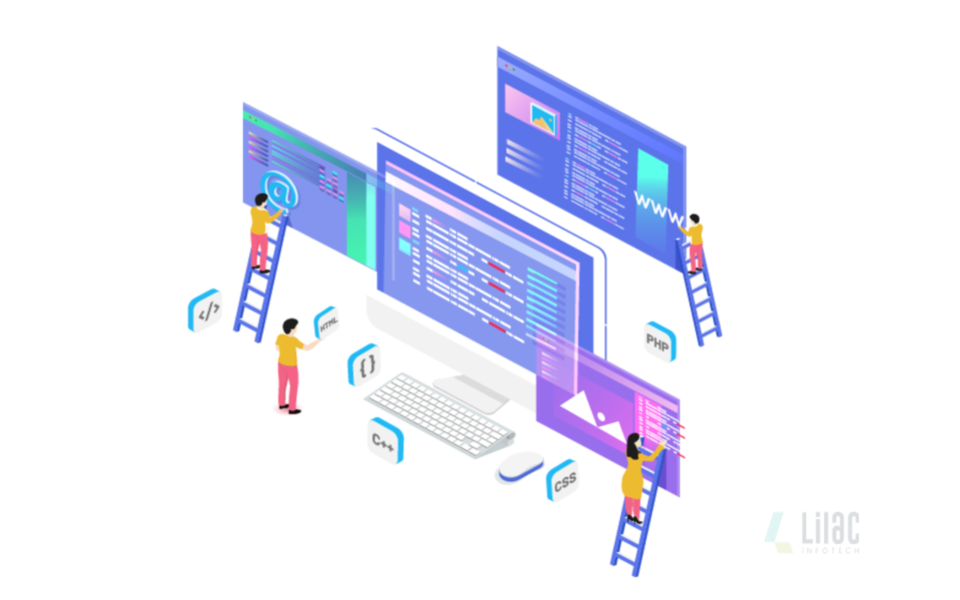
In modern web development, choosing the right backend technology is crucial for building scalable, high-performance applications. Laravel, a robust PHP framework, has emerged as one of the most popular choices for backend development. Known for its elegant syntax and comprehensive features, Laravel offers an ideal environment for developers to create fast, maintainable, and scalable applications.
In this blog, we’ll explore why Laravel is an excellent choice for modern web development and how it helps developers build high-performing applications.
Key Benefits of Using Laravel
Seamless Backend Development
Laravel excels in backend development by providing a clean and organized structure for tasks like routing, database management, and authentication. It simplifies complex operations while maintaining flexibility. With features like Eloquent ORM for managing databases and Blade templating for views, Laravel helps developers avoid repetitive tasks, enabling them to focus on core application logic.
The framework’s support for RESTful APIs and robust routing systems simplifies the development of modern web applications. This ease of integration with frontend technologies and third-party services makes Laravel ideal for building scalable applications.
Enhanced Developer Productivity
Laravel is designed with developer productivity in mind. It provides built-in tools to streamline development tasks and automate repetitive processes. The Artisan command-line interface (CLI) simplifies operations like database migrations, seeding, and running tests, freeing developers to focus on building key features.
Laravel’s database migration system and built-in validation rules further streamline backend development. Its extensive documentation and active community help developers solve challenges quickly, reducing development time and improving efficiency.
Scalability and Flexibility
As applications grow, scalability becomes essential. Laravel supports scaling with features like caching, queues, and job dispatching, ensuring applications can handle increased load without compromising performance. Laravel’s modular structure also enables developers to add new features easily or modules without disrupting the codebase, which helps maintain high performance as demand increases.
Laravel’s ability to manage complex logic while maintaining scalability makes it ideal for growing applications.
Robust Security Features
Security is a top priority in modern web development, and Laravel provides built-in tools to protect applications from common vulnerabilities. It prevents SQL injection, cross-site request forgery (CSRF), and cross-site scripting (XSS) attacks. The framework also integrates secure password hashing and provides easy-to-use authentication features to protect sensitive user data.
Laravel’s authorization system allows developers to define fine-grained access control logic, ensuring that only authorized users can access certain parts of the application. This built-in security helps developers create secure, reliable applications.
Built-in Testing Support
Automated testing is crucial for ensuring stable, bug-free applications. Laravel integrates seamlessly with PHPUnit, a popular testing framework for PHP, to provide robust testing capabilities. Developers can write unit tests and automate their execution with Laravel’s built-in testing tools.
Laravel’s testing utilities, such as database migrations and seeders, allow for comprehensive testing environments. It ensures that applications are tested thoroughly, helping developers identify and fix issues early in the development cycle.
Comprehensive Ecosystem
Laravel’s ecosystem includes a rich set of tools and packages that make backend development faster and easier. Whether you need tools for task scheduling, email handling, or API authentication, Laravel provides built-in solutions. Laravel Horizon, for example, helps developers manage queues efficiently, while Laravel Passport simplifies API authentication.
The Laravel ecosystem also includes tools like Laravel Forge for server management and Laravel Nova for building admin panels. These tools enhance Laravel’s functionality, allowing developers to implement complex features without reinventing the wheel.
Task Scheduling and Automation
Laravel’s task scheduler enables developers to automate repetitive tasks, such as database cleanup, email notifications, and report generation. This built-in feature eliminates the need for external cron jobs and makes it easier to schedule and manage tasks within the application.
By automating routine operations, Laravel helps developers focus on building the core functionality of their applications, enhancing overall productivity.
Common Use Cases for Laravel
1. Content Management Systems (CMS)
Laravel’s flexibility and ease of use make it ideal for building Content Management Systems (CMS). Developers can create powerful admin interfaces and manage complex content storage, user permissions, and media uploads. Laravel’s Eloquent ORM and Blade templating system allow developers to build dynamic, user-friendly CMS platforms that scale easily.
2. E-Commerce Platforms
Laravel is also perfect for building e-commerce websites. It provides the tools for managing products, users, payments, and order processing. With Laravel’s modular architecture, developers can easily add new features, like inventory management, customer reviews, or coupon systems, without disrupting existing functionality.
Laravel’s ability to integrate with third-party services and APIs makes it a great choice for building secure and scalable online stores.
3. Real-Time Applications
Laravel is well-suited for real-time chat apps or live data dashboards. With Laravel Echo, developers can implement WebSockets to enable real-time event broadcasting from the backend to the frontend. Whether building a messaging platform or a live notification system, Laravel’s tools make it easy to create interactive and dynamic user experiences.
4. Enterprise-Level Applications
For large-scale, enterprise-level applications, Laravel’s scalability and flexibility make it a strong choice. The framework supports complex API integrations, manages large datasets, and handles high levels of traffic. Its modular structure ensures applications can evolve and scale over time without affecting performance.
Conclusion
Laravel is a powerful, flexible, and scalable framework for modern web development. With its clean syntax, comprehensive set of tools, and rich ecosystem, Laravel allows developers to build secure, high-performance applications quickly and efficiently. Whether you’re building a CMS, e-commerce platform, real-time application, or enterprise system, Laravel offers everything you need to create scalable, maintainable, and robust web applications.
Looking to build a web application? Laravel offers speed, security, and scalability to meet modern development needs. Leverage its power today and create your next project with confidence!



















Post a Comment